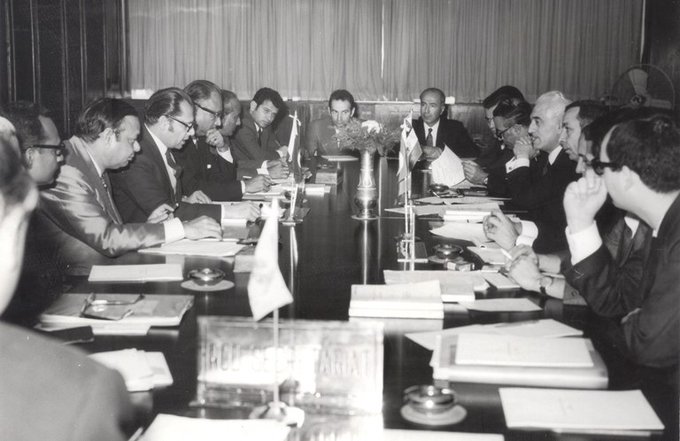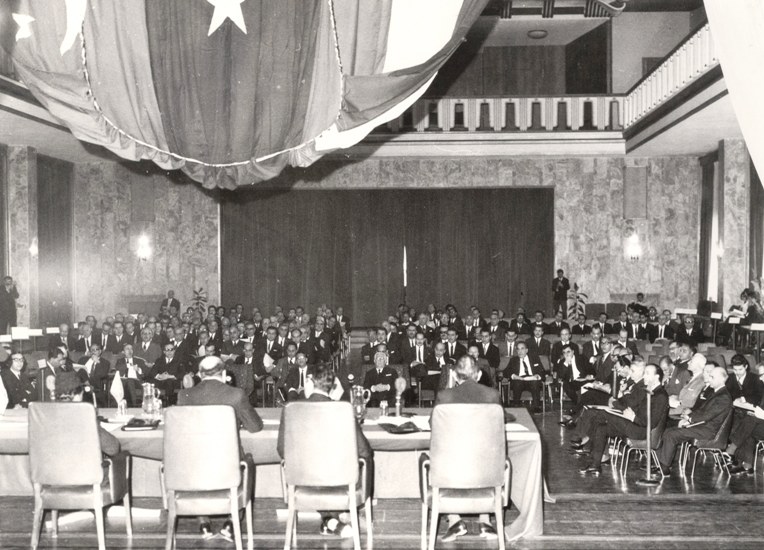Regional Cooperation for Development preceded by Economic Cooperation Organization (ECO) was established by Turkey, Pakistan and Iran in 1964. In 1992, the Islamic Republic of Afghanistan and six former Soviet Republics, namely, Kyrgyz Republic, Republic of Azerbaijan, Republic of Kazakhstan, Republic of Tajikistan, Republic of Uzbekistan and Turkmenistan also joined the organization. The Turkish Republic of Northern Cyprus has the observer country status to the organization. ECO with its ten member countries formed one of the biggest regional blocs.

The Members of the Economic Cooperation Organization, in order to develop and to increase the means of communication among the peoples of the Region for promoting mutual understanding and a truer and more perfect knowledge of each other; determined to broaden and enlarge the scope of cooperation among ECO countries; have created Specialized Agencies with personality and autonomous management, these subsidiary bodies of the ECO deal with areas of regional cooperation such as economic growth, culture, science, technology, education, finance, etc.

The indispensable role played by education, mental and physical training in bringing about economic and social progress as well as promoting a better understanding and cultivating stronger and deep rooted ties amongst the people; the members of ECO are fully aware of the importance of intellectual activity, including the exchange of persons active in the field of education as well as the exchange of publications and other materials of information, in enhancing collaboration amongst peoples and nations; in consequence thereof, have decided to create ECO Educational Institute (ECOEI) for the purpose of promoting educational and training activities.
The founding decision of the ECOEI in Ankara was taken during the 8th Meeting of the ECO Council of Ministers which was held in Almaty on 9 May 1998, (in line with the paragraph on “Special Agencies and Regional Institutions” of the Article 10 of the Treaty of Izmir). The Charter of ECOEI was opened for signatures of member countries on that date. Member countries, except for Uzbekistan and Turkmenistan, have signed the Charter, and all the signatories have ratified, except for Kazakhstan.
Since then, the Institute works hard to promote educational cooperation and strengthen academic and training activities amongst the member states. Bearing in mind, the unifying power of education and the power of investment on education to ensure social and economic development, the ECOEI is a proud partner to member states in order to achieve their educational and academic goals.
